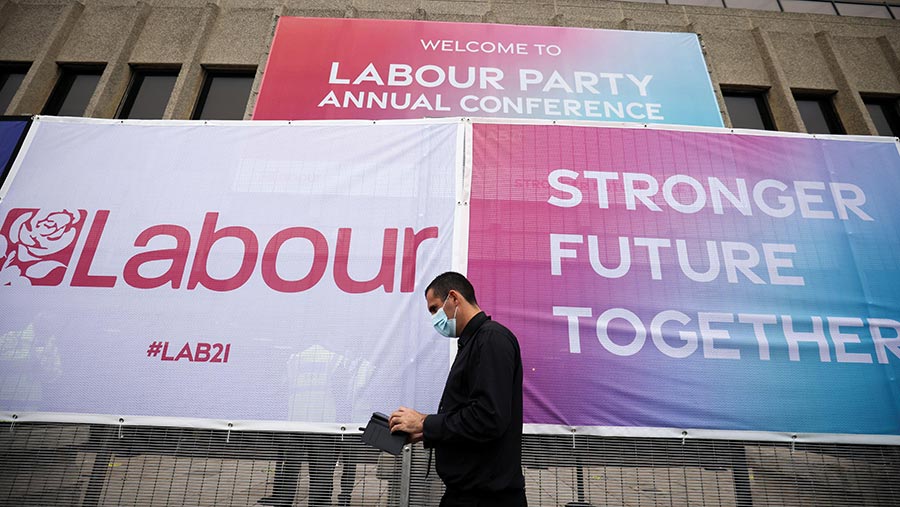FW Opinion: Can Labour be trusted on farming promises?
 © Reuters/Alamy Stock Photo
© Reuters/Alamy Stock Photo Farmers Weekly has a long tradition of political neutrality. While it cannot be denied that our readership has a tendency to vote Conservative, where anyone places that cross on the ballot paper is a matter for them, not us.
Clearly, we are not expecting a general election anytime soon. But with conference season upon us, and people at last able to meet face to face to talk politics, one can’t help but wonder why Labour has done so badly in recent times.
See also: Labour pledges a rural affairs minister in every department
Our annual Sentiment Survey, last carried out at the end of 2020, showed that if there was an imminent election, 72% would vote Conservative and just 10% Labour.
This has been borne out in real elections in the recent past. After the 2017 ballot, for example, Labour held just 32 of the 199 rural seats in England and Wales. At the last election, in 2019, that had slipped to a mere 17 seats.
Labour has not always been so unappealing to rural voters. There have been times – such as after the 1997 and the 2001 elections – when it actually held more rural seats than the Tories. True, not all those votes would have come from farmers, but plenty did.
It is perhaps surprising that Labour does not succeed more often in rural areas. The old adage that “farming always does better under a Labour government” is not without foundation (though that other adage that “farming always does well in a recession” may not be unrelated).
Either way, it is clear that Labour is trying to up the ante on rural issues now, recognising that it needs to win back the rural vote to stand any chance of regaining power at the next general election. And much of what was said at this week’s party conference in Brighton does strike a chord.
Shadow Defra secretary Luke Pollard was quick to highlight the many problems affecting farmers – cuts to direct payments, labour shortages, poor broadband, unaffordable housing – pointing the finger of blame at the Conservative government.
His criticism of Defra and, by implication, the current secretary of state, was also pretty candid.
Shadow trade secretary Emily Thornberry was even more damning in her criticism of the Tory government, describing its trade policy as “brazen, callous and reckless”.
Allowing tariff-free access to Australian food producers while failing to insist on equivalent production standards to UK producers was setting a precedent that every other food-exporting nation would expect in future, inflicting “untold damage on our farmers”, she said.
Both MPs were also right to suggest that there is an opportunity for Labour to regain favour in the countryside. Given the long list of stresses affecting food and farming, the current Conservative government does indeed appear to be taking the rural vote for granted.
But, as is so often the case with Labour, it is quick to point out all that is wrong with the current administration, but slow to provide clarity on what the opposition will actually do about it. The leadership might be making the right noises now, but how will that translate into specific policies?
Mr Pollard is currently conducting a review of Labour’s rural policies, but the contents of that review will not be known until much closer to the next general election. Only then will it be possible to judge whether a traditionally urban party has indeed acquired some rural credentials. Until that time, a degree of scepticism is called for.

